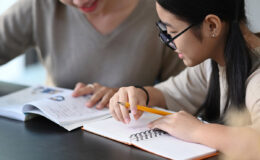In the early spring it felt like we had so much time. The world around us was crumbling, no doubt. There was no more commuting, the kids were out of school, the stores were all closed, and all social functions halted– no doubt, life was different. It certainly had an apocalyptic glaze to it. But always there was a creeping hope that the summer would salve the wounds of incredulity. The sun would at least reduce the pain and suffering of the dying, and by fall there would be at least be some some semblance of normal: the annual vacations, the return of football, and, of course (of course?!) the return to school for the well loved adorable midgets who were actively tearing down the walls of our sanctum?
But then wearing a mask became a political issue, instead of health & safety matter, and we ended up having to consider another year without a formal educational experience for our kids.
There are no great choices now. Only risks…. A recent study by the NWEA, a nonprofit organization formerly known as the Northwest Evaluation Association, and scholars at Brown University and the University of Virginia, suggested that the average student will return to school having retained only 63 to 68 percent of reading gains, and 37 to 50 percent of math compared to a typical year. To think that there won’t be any negative effects, academically or socially, is laughable.
And yet, a great majority of parents would quickly respond that sending a child somewhere where the death risk is greater than the ‘zero average of normal’ is intolerable. You want your kids sharp and well-adjusted, but you don’t want them dead.
So here we are at the crossroads between pandemic and uncertainty. But as they say, ‘necessity is the mother of invention.’ Already creative ideas like educational collectives, advanced homeschooling techniques, and even virtual or augmented reality integrations are popping up everywhere. We are truly standing at the doorstep to the next generation of educational philosophy, and are blessed to be a part of it, despite its uncertainties. While our children will no doubt lose the perks presented by traditional educational structures, they will benefit from the creative space between worlds, and perhaps be better equipped to live in the unknown of the world to come.






